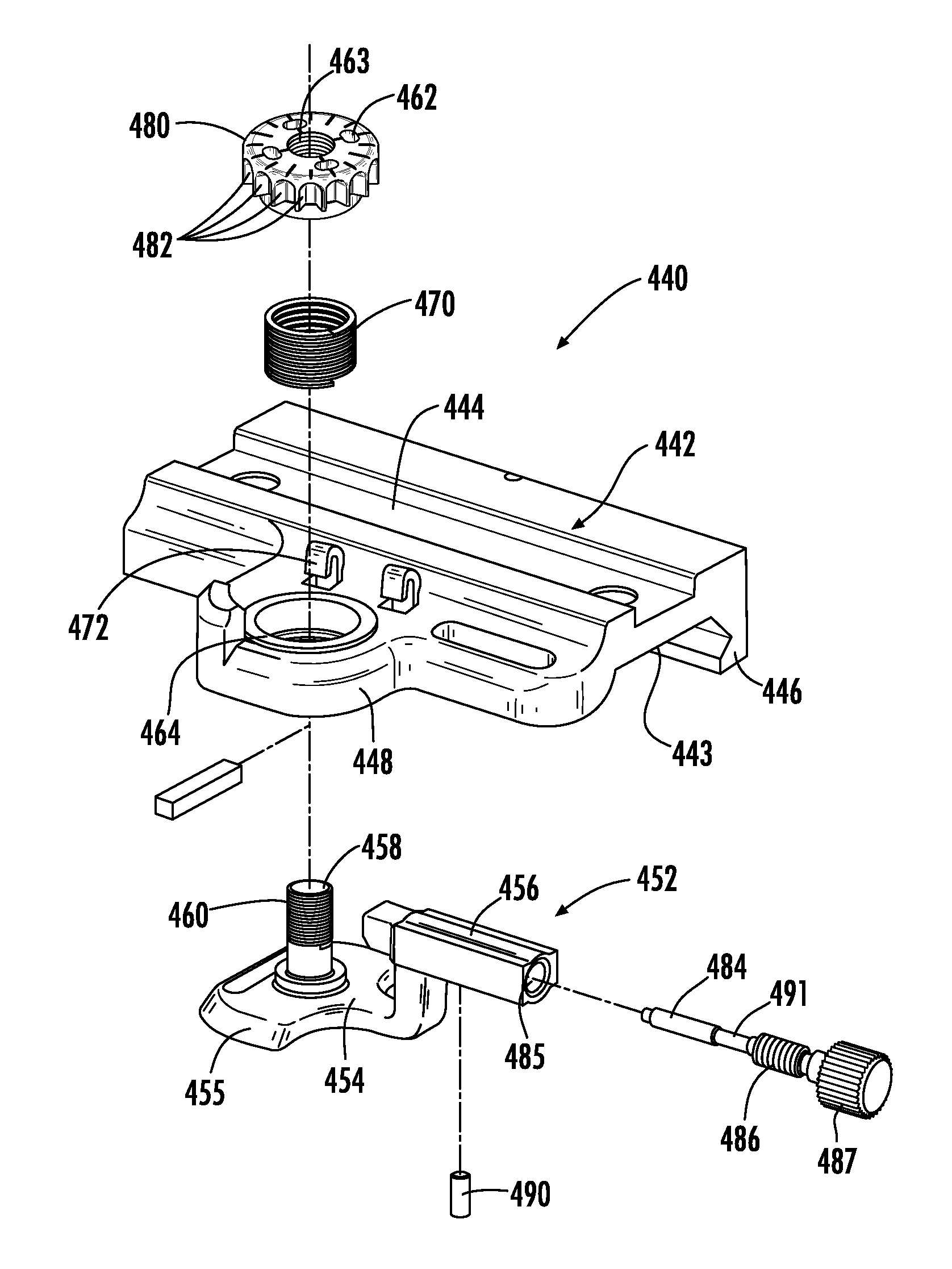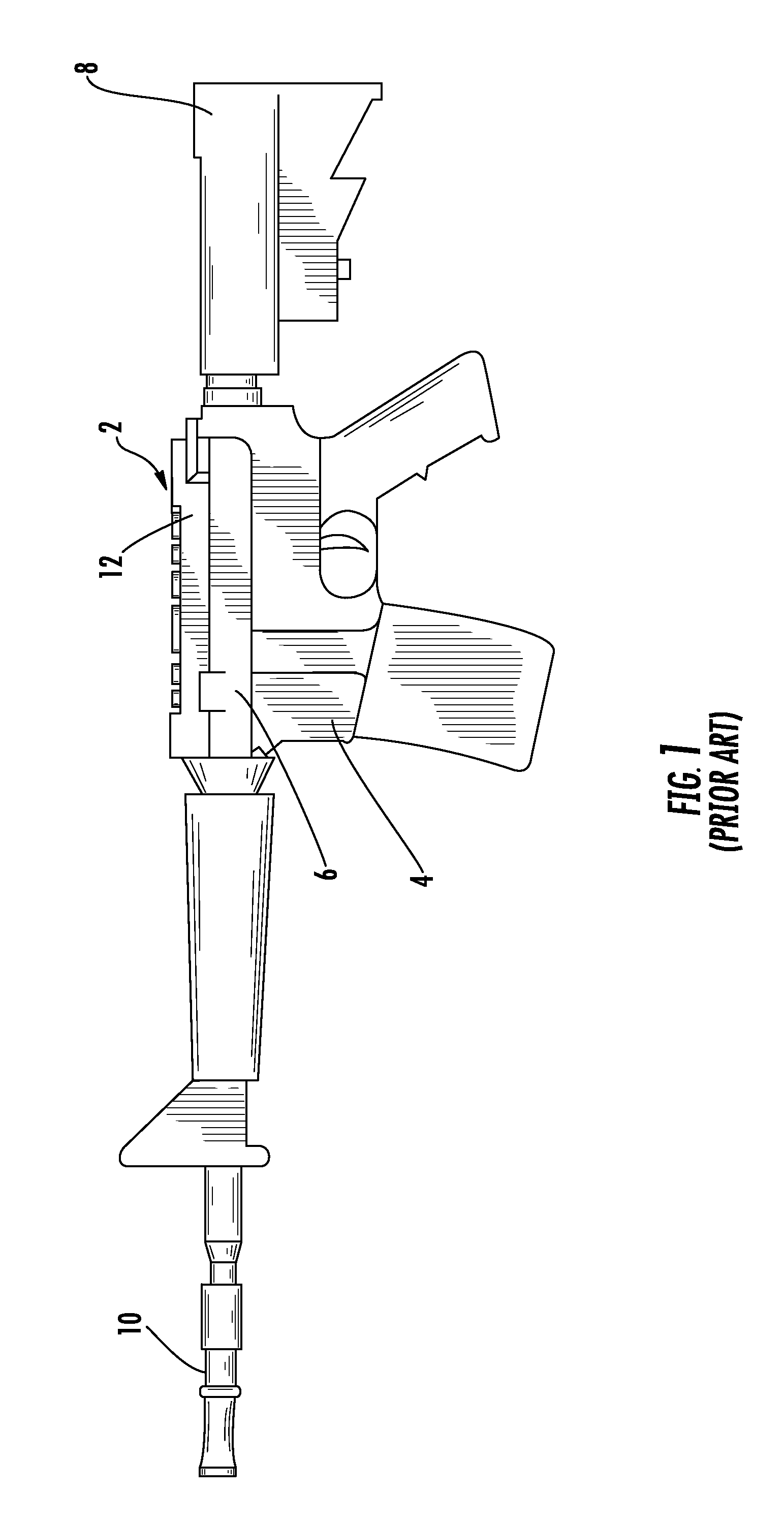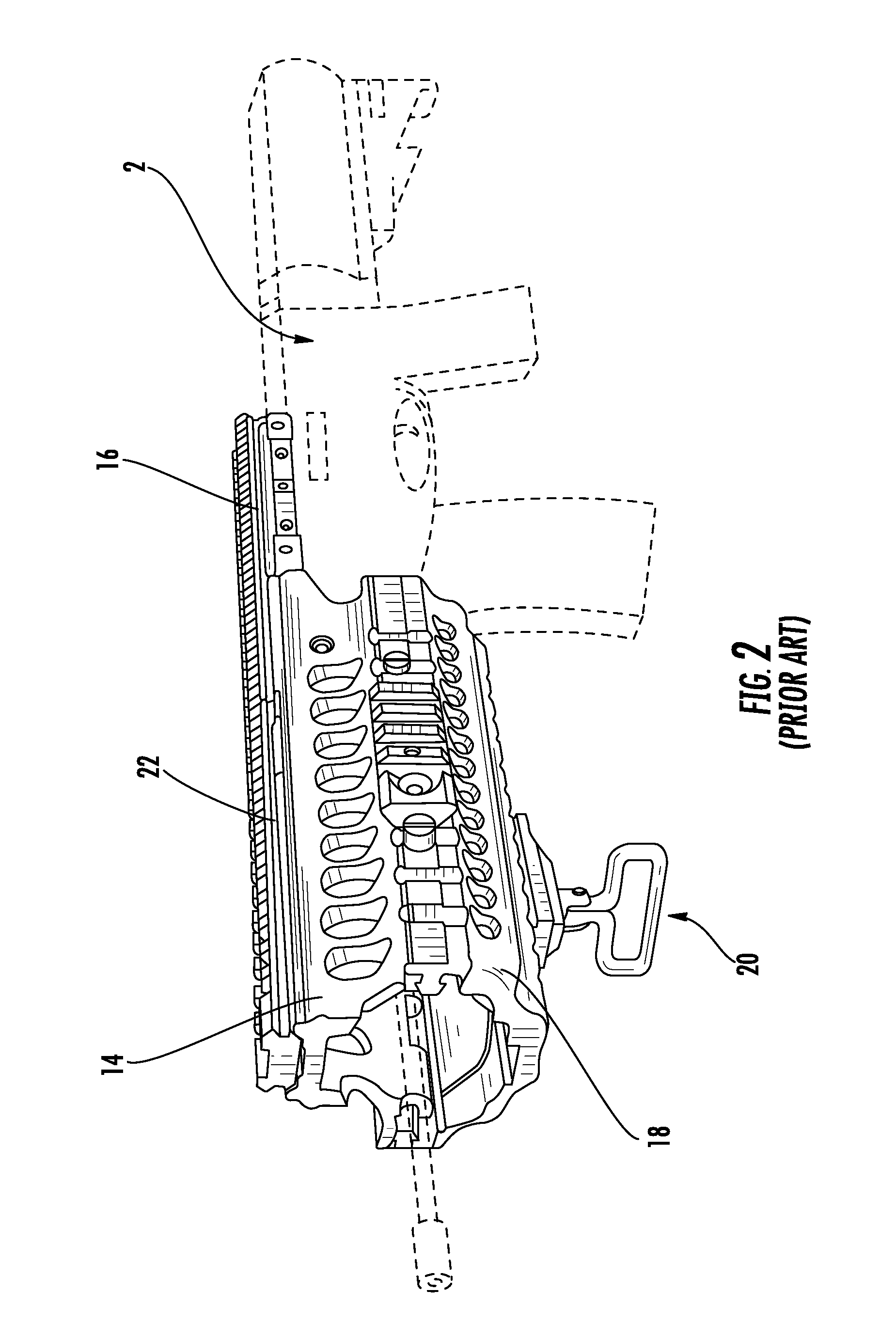Mounting assembly with adjustable spring tension
a technology of mounting assembly and spring tension, which is applied in the direction of mechanical equipment, manufacturing tools, and rod connections, etc., can solve the problems of affecting the service life of the upper receiver, and simply not enough space on the upper receiver's integrated rail to accommodate all of the desired accessories, etc., to achieve reliable spring tension control and reliable mounting
- Summary
- Abstract
- Description
- Claims
- Application Information
AI Technical Summary
Benefits of technology
Problems solved by technology
Method used
Image
Examples
second embodiment
[0060]Turning now to FIGS. 7, 8 and 9, the mounting assembly 140 can be seen to include a main body 142 that is configured in substantially the same manner as a traditional prior art device and further includes a lower portion 143 that is configured to engage the dovetail rail 12 found on most modern combat weapons 2 and an upper portion 144 that can take on a variety of configurations depending on the accessory that is to be mounted thereon. As can best be seen in FIG. 9, the lower portion 143 of the main body 142 has a first engagement member 146 extending downwardly along one side thereof for engaging one side of the dovetail rail 12. Opposite the first engagement member 146, a boss formation 148 is provided adjacent the side of the main body 142 wherein the boss formation 148 includes a large central opening 150 therein to receive a clamping assembly generally indicated at 152. An annular bushing 164 with a smaller central opening 165 is installed into the large central opening ...
first embodiment
[0063]There is also shown a steel buffer pad 172 having a flat horizontal base portion with an arm 174 extending upwardly at an oblique angle of 135 degrees relative to the base. The free end of each arm 174 is curved approximately 150 degrees. Two side-by-side openings 176, corresponding in separation to the separation between buffer pad arms 174, are formed in the main body 142. The arms 174 of the buffer pad 172 are slid through the openings 176. In all respects, the buffer pad 172 operates as described in the first embodiment above.
[0064]Turning to FIG. 10, a third embodiment of the mounting assembly can be seen, and is generally indicated at 140A. The third embodiment is similar to the previous embodiment 140, including the same general components, main body 142, clamping assembly 152, etc. The differences are found in the manner of locking the retention nut 162 relative to the cam foot 154. Retention nut 162 no longer includes the nylon bushing 166. Rather, the nylon bushing 1...
fourth embodiment
[0065]Turning to FIGS. 11, 12 and 13, the mounting assembly 240 can be seen to include a main body 242 that is configured in substantially the same manner as a traditional prior art device and again includes a lower portion 243 that is configured to engage the dovetail rail 12 found on most modern combat weapons 2 and an upper portion 244 that can take on a variety of configurations depending on the accessory that is to be mounted thereon. As can best be seen in FIG. 13, the lower portion 243 of the main body 242 has a first engagement member 246 extending downwardly along one side thereof for engaging one side of the dovetail rail 12. Opposite the first engagement member 246, a boss formation 248 is provided adjacent the side of the main body 242 wherein the boss formation 248 includes a large central opening 250 therein to receive a clamping assembly generally indicated at 252. An annular bushing 264 with a smaller central opening 265 is installed into the large central opening 25...
PUM
 Login to View More
Login to View More Abstract
Description
Claims
Application Information
 Login to View More
Login to View More - R&D
- Intellectual Property
- Life Sciences
- Materials
- Tech Scout
- Unparalleled Data Quality
- Higher Quality Content
- 60% Fewer Hallucinations
Browse by: Latest US Patents, China's latest patents, Technical Efficacy Thesaurus, Application Domain, Technology Topic, Popular Technical Reports.
© 2025 PatSnap. All rights reserved.Legal|Privacy policy|Modern Slavery Act Transparency Statement|Sitemap|About US| Contact US: help@patsnap.com



